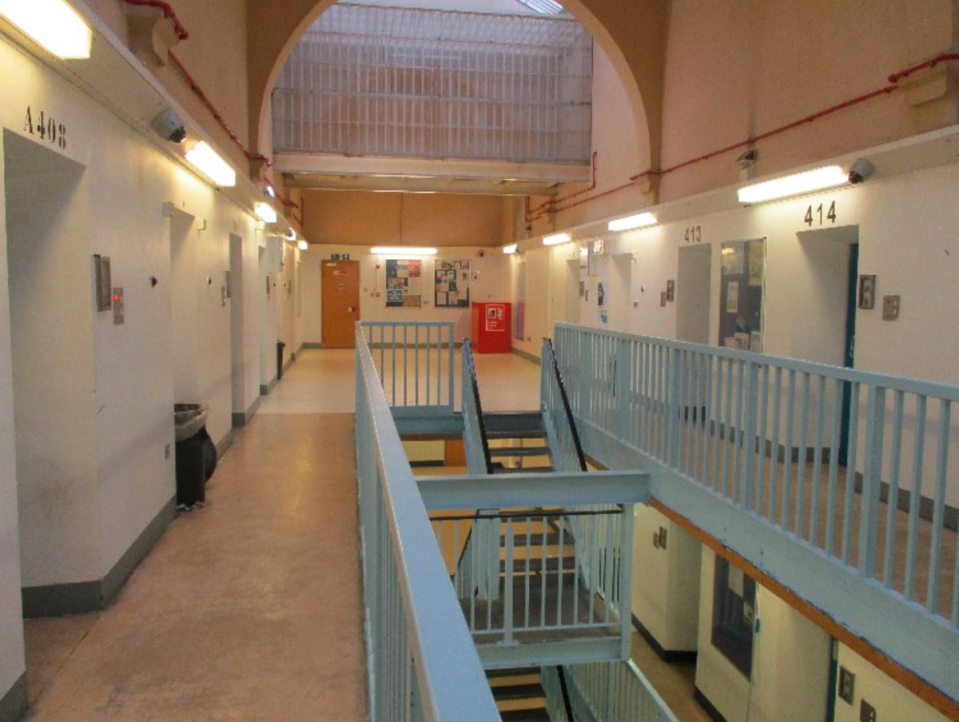Starmer has no option but to reduce prisoner sentences or risk justice system collapse, unions warn
Sir Keir Starmer’s new government has “no other alternative” but to release prisoners 40 per cent of the way into their sentence to ease the overcrowding crisis behind bars and avert the collapse of the criminal justice system, unions have warned.
The new justice secretary, Shabana Mahmood, is expected to announce such measures on Friday, with exemptions for more serious offenders, after Sir Keir described his shock at the extent of the mess he has inherited from the Conservative government.
Rishi Sunak’s administration is understood to have drawn up similar plans before abandoning them prior to calling the general election in June. He had already been forced to release prisoners progressively earlier since October, reaching up to 70 days early in May.
Describing the bringing forward individual prisoners’ release dates as having caused “absolute mayhem” for the probation service, Napo union chief Ian Lawrence said he hopes the new move of a more blanket recalculation of sentences will ease some of the pressure.

“We’re not opposed to the early release of prisoners to free up capacity for those who deserve to be behind bars, but you have to do it in an orderly way and the current scheme does not do that – it’s not giving enough time for assessment to be made about the risks of a particular individual,” he told The Independent.
“That’s caused absolute mayhem for probation staff because we’re trying to deal with people at short notice. If they’re not in place with a rehabilitation plan, the chances are they’ll be recalled (to prison) in a week or two, so it’s a revolving door scenario.”
The probation union chief called for a “properly monitored scheme” which gives probation staff sufficient time to assess each individual prisoner, adding: “None of that was part of last government thinking. They just wanted to clear the cells, come what may, and not listen to the experts.”
He added: “That will give us more time to play with, but it’s the volume that still concerns me. How are we going to deal with this with the limited capacity we have?”
Warning that the probation service is in desperate need of a major financial rescue package, Mr Lawrence said: “You’ve got to pay staff sufficiently to recruit, retain and motivate.”
Demanding that the new government look at reopening pay negotiations immediately, he warned that the £150m a year touted by the previous administration “hasn’t produced the results we need”.
Indicating that the prospect of strike action remains on the table, he said: “Napo have taken a decision to postpone the prospect of immediate industrial action while we await engagement with the minister.”
And as Sir Keir touts the idea of private help for the public sector, Mr Lawrence warned Napo “will be utterly opposed to any concept of private sector involvement into the work of probation”, saying: “Any government ought to have learnt their lesson by now that that was a disaster for the taxpayer and the service.”

With probation officer caseloads already well over capacity, Mr Lawrence expressed hopes for a review of the service itself and a “root-and-branch” review to establish “whether our sentencing policies are fit for purpose and meet the need of the times”.
Suggesting that there was “much to be learned” from the “courageous” attempts of Tory ministers Rory Stewart and David Gauke to end the use of short sentences in order to reduce reoffending, he added: “Unless you do that, the cycle will continue and prisons will become full again very quickly.
“Is this government going to take the brave steps to really have a look at short-term sentencing?”
In the short term, Carl Davies of the Prison Governors Association warned that Sir Keir has “no other alternative” than to release most prisoners 40 per cent of the way into their sentence, as opposed to halfway through.
“Prisons are all but full” and “to some degree, we’re in a ‘one in, one out’ scenario in some parts of the country” already, he said.
Warning that the previous government’s early release scheme had seen probation’s limited resources “channeled into managing a capacity crisis in prisons, and that’s a waste of their skilled and valued resource”, he added: “Having an automatic 40 per cent mark does away with that additional workload.”
Steve Gillan, head of the Prison Officer Association, also told The Independent that it is “inevitable” that Sir Keir would have to strategically release prisoners “otherwise the criminal justice system would have collapsed”.
“The reality is that this is going to have be done and done quickly to relieve the pressure on system”, and the new scheme must free up between three and five thousand spaces, said the union chief, warning that “anything less than that would be a complete waste of time”.
Warning that more long-term solutions are needed, Mr Gillan insisted you “can’t build your way out of a crisis”, as he suggested spending the £4bn earmarked for new prisons internally instead to immediately improve conditions while planning “a proper sentencing policy that actually reduces the population”.

 Yahoo News
Yahoo News 
